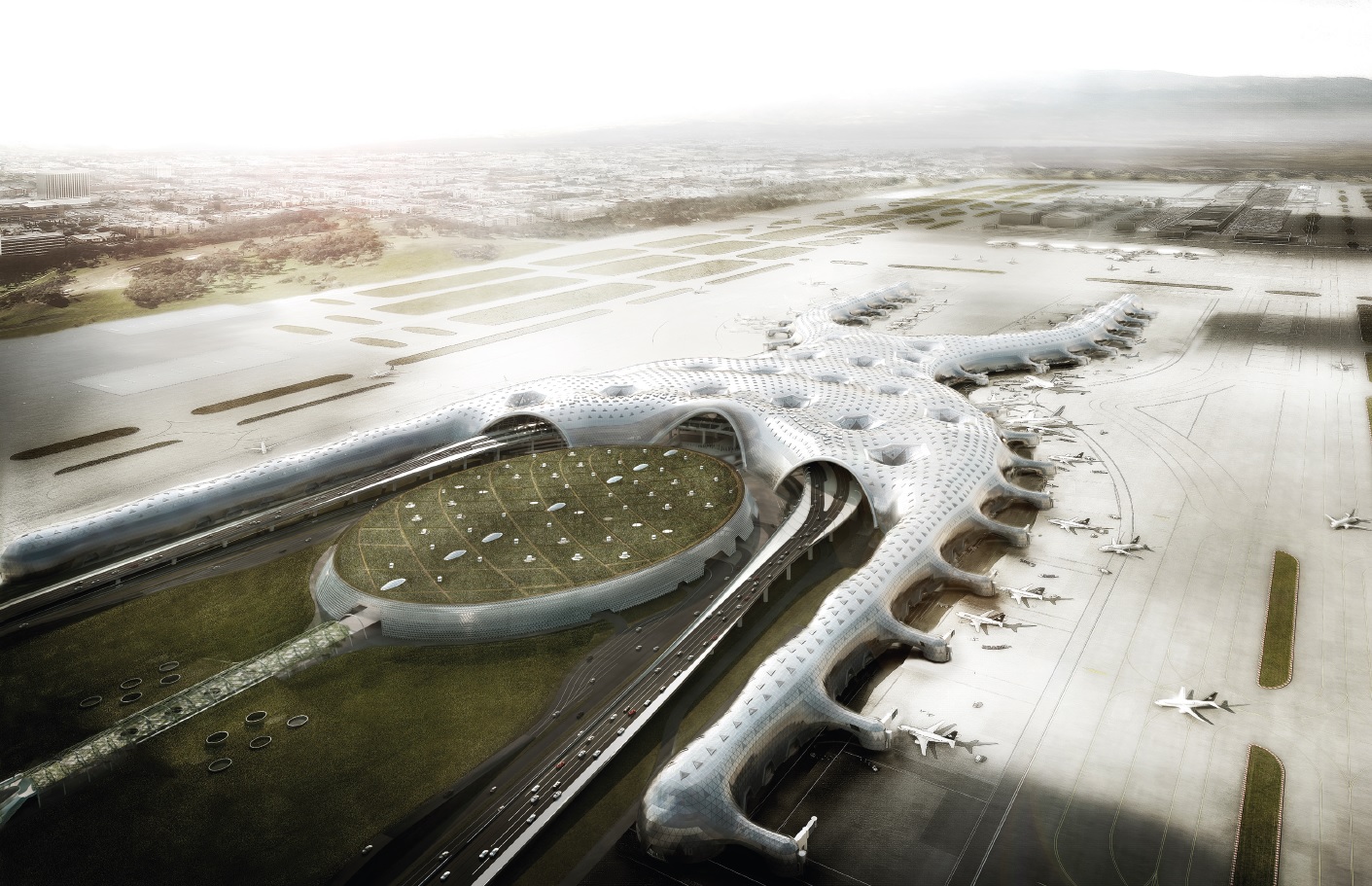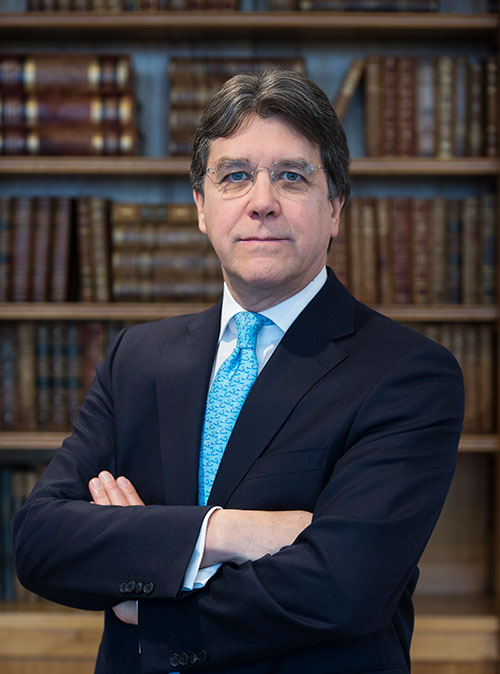As the sun goes down on the dynastic ownership of one of Spain’s great institutions, a new dawn shows a teasing glimpse of a brighter future on the horizon.
By Jason Agnew
WHEN Mexican economist Carlos Jarque was handed the reins of ailing Spanish infrastructure giant FCC (Fomentos de Construcciones y Contratas) two years ago, most experts were probably expecting him to simply manage a decline.
What few expected was an impressive turnaround, world-class contracts, and a debt reduction that shaved more than a third off its €2bn liability.
Aside from Jarque’s himself, only one man could have foreseen such remarkable reversal of FCC’s expected nosedive… Carlos Slim. A fellow countryman of Jarque, Slim raised plenty of eyebrows when he snapped up the rights of Esther Koplowitz to buy shares in FCC’s €1 billion capital increase in November 2014. His investment brought the curtain down on the Koplowitz family’s eight-decade control of a once hugely successful company that had found itself in a post-crisis slump.

Despite the best efforts of one of Spain’s wealthiest dynasties, FCC floundered like a defeated boxer struggling to pull up from the canvas. It looked like an organization that might never get back on its feet. But not in the eye of Carlos Slim. He had other ideas.
From 2010 to 2013, Slim was the richest man in the world. Born to Lebanese Maronite parents in 1940, he received a sound business education from his ambitious father, Julian, and made his first foray into the stock market at the tender age of twelve, acquiring shares in a Mexican bank.
After graduating, he progressed naturally into a career as a stock trader. A combination of fourteen-hour days and re-investing most of the money he made paved the way for his rise to the summit of the world’s wealthiest people. Over the next five decades, his Grupo Carso took over companies from every sector of the economy, from construction and chemicals to tobacco and telecommunications.
By the time he appointed Carlos Jarque as Director of International, Governmental & Corporate Relations at America Movil in 2013, his was a story of superlatives – the wealthiest man in the world appointing Mexico’s pre-eminent economist to the board of Latin America’s largest company.
Carlos Manuel Jarque Uribe, born in Mexico City a decade and a half after Slim, had established himself as a leading economist and politician. Armed with a Masters in Statistics from the LSE and a post-doctorate in econometrics from Harvard, he embarked on a career in public service, first as Chief of Statistics at Mexico’s Ministry of Planning, then as Director of the International Statistical Institute (ISI) in The Hague, before a brief stint as Chairman of the UN Statistical Commission and President of their Cartographic Conference. He spent eleven years heading the National Institute of Statistics, Geography and Informatics (INEGI) – the government body responsible for, among other things, national policy for IT. He proved to be quite a radical modernizer, pioneering a global environmental project – the Green GDP of Mexico – introducing an advanced national IT policy and initiating a comprehensive programme of land titling for over half the national territory and more than a third of Mexican housing.

In 1995 President Zedillo invited him to become Secretary of the National Development Plan of Mexico and Minister for Social Development. Both positions focused heavily on social welfare, economic growth, poverty reduction and urban development. After the fall of the government, Jarque took on the role of Manager of the Sustainable Development Department of the Inter-American Development Bank. Between 2008 and 2013 he was the IDB Representative in Europe, promoting investment from Europe into Latin America principally in water, energy infrastructure, urban development, transport and sustainable cities, and acting as a go-between for Heads of State summits, the perfect role given his connections. It was inevitable then that he would be picked up on the radar of his compatriot and offered a position within his organization.
The proud heritage of FCC dates back to 1900 when Fomento de Obras y Construcciones S.A. (FOCSA) was founded, and grew by winning tenders for public infrastructure projects. In 1952, a Jewish immigrant from Silesia – Ernesto (Ernst) Koplowitz – moved to Spain to escape the Nazis, and borrowed money from a friend to buy Construcciones y Reparaciones, a small company focused on rebuilding. The firm grew rapidly through the construction booms of the 1960s and 1970s and, in 1992, merged with FOCSA to form FCC. The new company continued to expand until the global crisis of 2008 which resulted in Spain’s total spending on public works plummeting from just under €40bn in 2008 to €7bn in 2012, forcing the Koplowitz family to reduce their exposure to debt and ultimately relinquish control of the company.
When Slim appointed Jarque CEO of FCC in August 2015, the old guard recognized that he was the perfect man for the job, with company chairperson Esther Alcocer Koplowitz saying: “His experience and leadership will ensure FCC resumes the path towards growth.” Jarque quickly set about steadying the ship, and in his first full year in charge, the company increased EBITDA by 2.3% and reduced its debt by €2 billion, some 34.3%.
In a phone conversation with Business Vision earlier this year, he reiterated his commitment to the highest standards in corporate governance and CSR.
“We have drawn up a code of ethics based on transparency, honesty and integrity which applies in all countries where we operate and sets out the principles of social and environmental conduct we demand from everyone from our management team right down to the lowest levels in the organization,” he enthused.
It all sounded very noble, so I asked him what measures he had in place to facilitate lines of communication between the board and employees further down the chain of command and if he planned to introduce any more?
“Regarding your question, FCC has an internal communication area that provides content to the different communication channels within the company and the employees such as the internal magazine, corporate website, intranet, campaigns, etc.
“In the area of CSR, the group has a committee formed by all the corporate areas and the four business areas. The chair of the RSC committee is the Deputy Secretary of the Board of Directors. The monitoring of the CSR policy depends on the executive committee of the board and the HR department is part of that committee. The board approves both the policy and the annual CSR plan and report.
“The group also has a Response Committee that analyses the incidences received through the whistleblowing channel, regarding compliance with the ethical code and the criminal responsibility of the legal person, reporting in the last instance to the audit and control committee of the Board of Directors. I, as CEO, oversee all of this and hold meetings with all these departments within the company.
“The board of FCC comprises four women out of 11 members in total, that is 36%, that’s double the IBEX 35 (Spanish Stock Market) average, and 25% of our directors are independent.”
He is passionate about their commitment to help develop a model for sustainable cities through their expertise in Infrastructure, Environmental Services and Water, and it was on the latter that he became most animated.
He said: “Did you know there are still one and a half billion people without access to clean water and we are committed to getting water supplied to everyone by 2030?
“To achieve that you need companies and we have signed up to that UN objective, and as the third largest global company in water supply we can really help deliver that.”
He added that plans were in hand for the construction of the terminal building at the New Mexico City Airport – a $4.2 billion-dollar project, the second largest of its kind being built.
“FCC has over 110 years’ experience in delivering this type of infrastructure project but our cutting-edge construction methods and technical expertise means that we can do it with a neutral environmental footprint,” he added.
“Which, on a project of this scale – 743,000 square metres of floor space in over 4,000 hectares of land – is remarkable.”
The new airport is being planned by Norman Foster and local designer Fernando Romero (who also happens to be Slim’s son-in-law). The complex is designed in the shape of an X to represent Mexico, and will include 24 water treatment plants, a hydraulic works with a regulation capacity of 38 million cubic metres (about sixty times the Aztec Stadium), casing on 25 kilometres of open drainage, and an urban forest (Bosque Metropolitano) covering 670 hectares, and new wetlands to protect bio-diversity.
“FCC has been delivering infrastructure in Mexico for over 20 years, and this contract is a major landmark in our company’s history in this market,” he added.
“We are excited to bring our global experience and technical expertise to a project that will transform travel and commerce in the region.”
These are early days, but all the signs are there that Carlos Jarque’s vast experience, social knowhow and environmental vision could lead FCC back to its glory days while making a positive impact on the health of the planet.




























